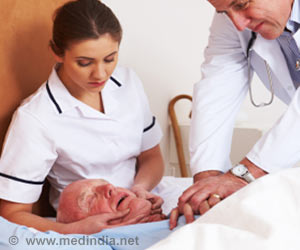Cardiac structure and function will be affected with increased amounts of alcohol consumption in the elderly, particularly among women and increases the risk of cardiomyopathy.

Dr. Scott Solomon, senior author of the study and professor of medicine at Harvard Medical School and director of noninvasive cardiology at Brigham and Women's in Boston, said that women appeared more susceptible than men to the cardiotoxic effects of alcohol, which might potentially contribute to a higher risk of alcoholic cardiomyopathy, for any given level of alcohol intake.
Dr. Alexandra Goncalves, lead author of the study and Postdoctoral Research Fellow at Brigham and Women's in Boston, said that in spite of potential benefits of low alcohol intake, their findings highlight the possible hazards to cardiac structure and function by increased amounts of alcohol consumption in the elderly, particularly among women.
Moderate drinking is generally defined as two drinks a day (beer, wine or liquor) for men and one drink a day for women.
Source-Medindia
 MEDINDIA
MEDINDIA




 Email
Email










